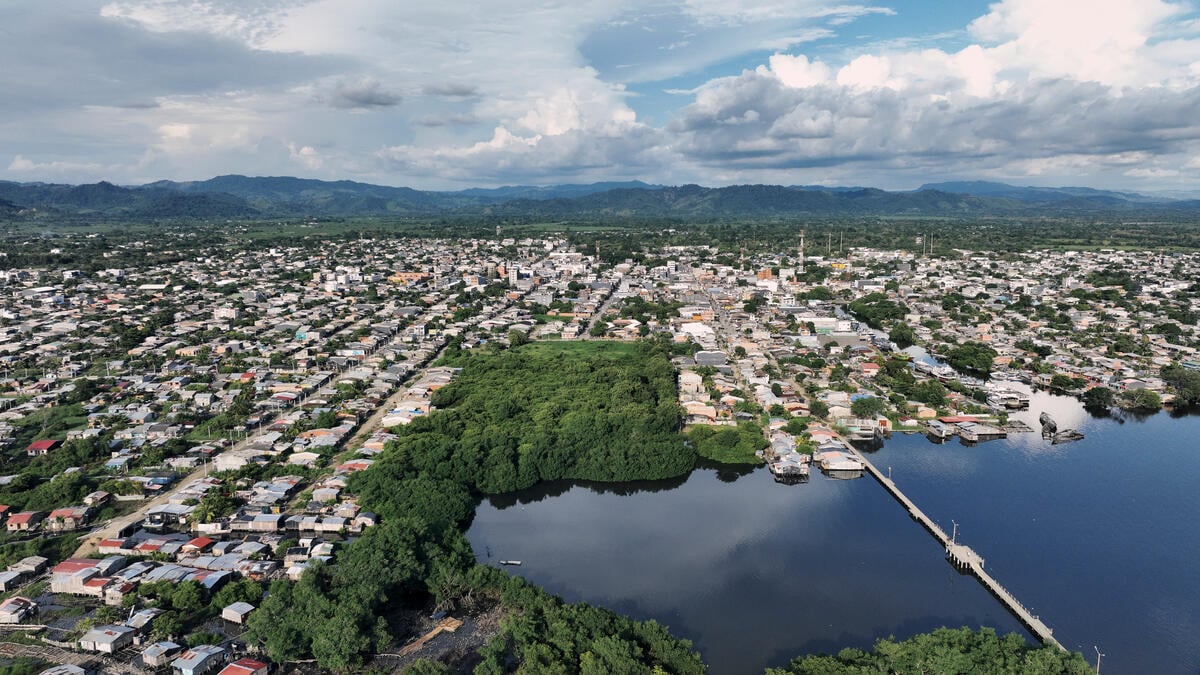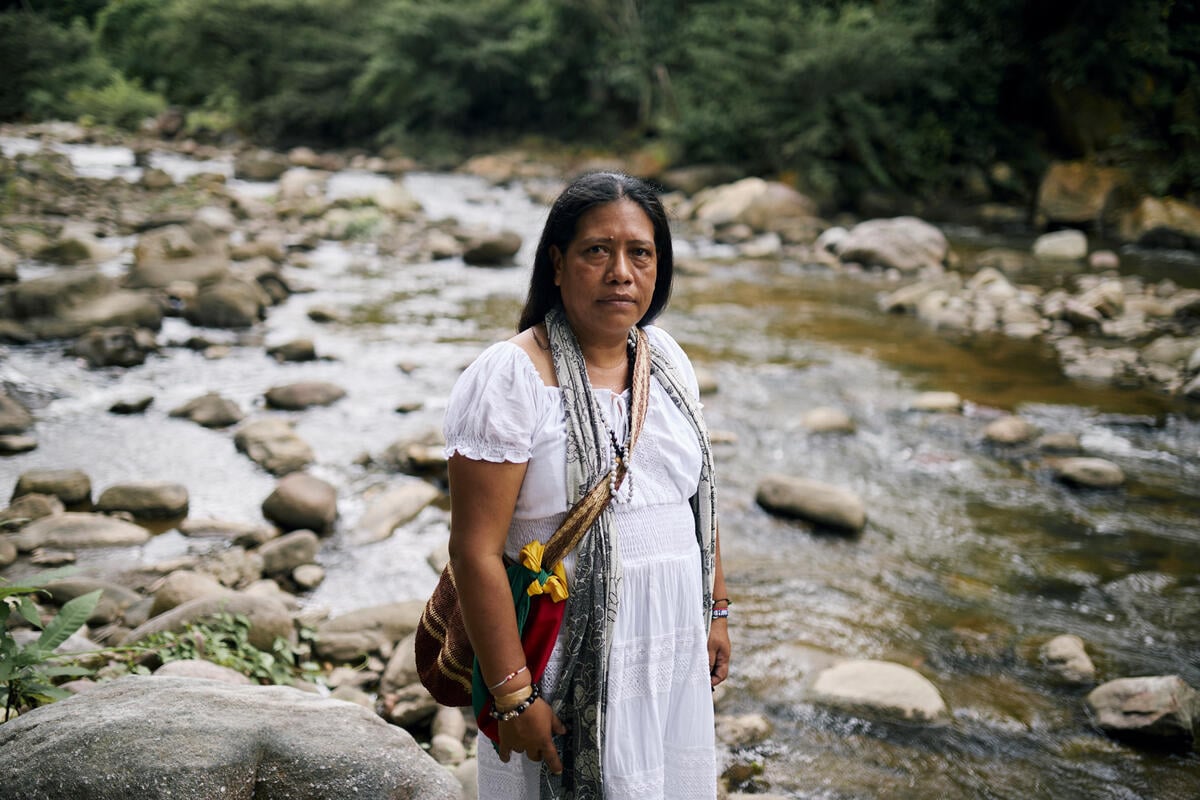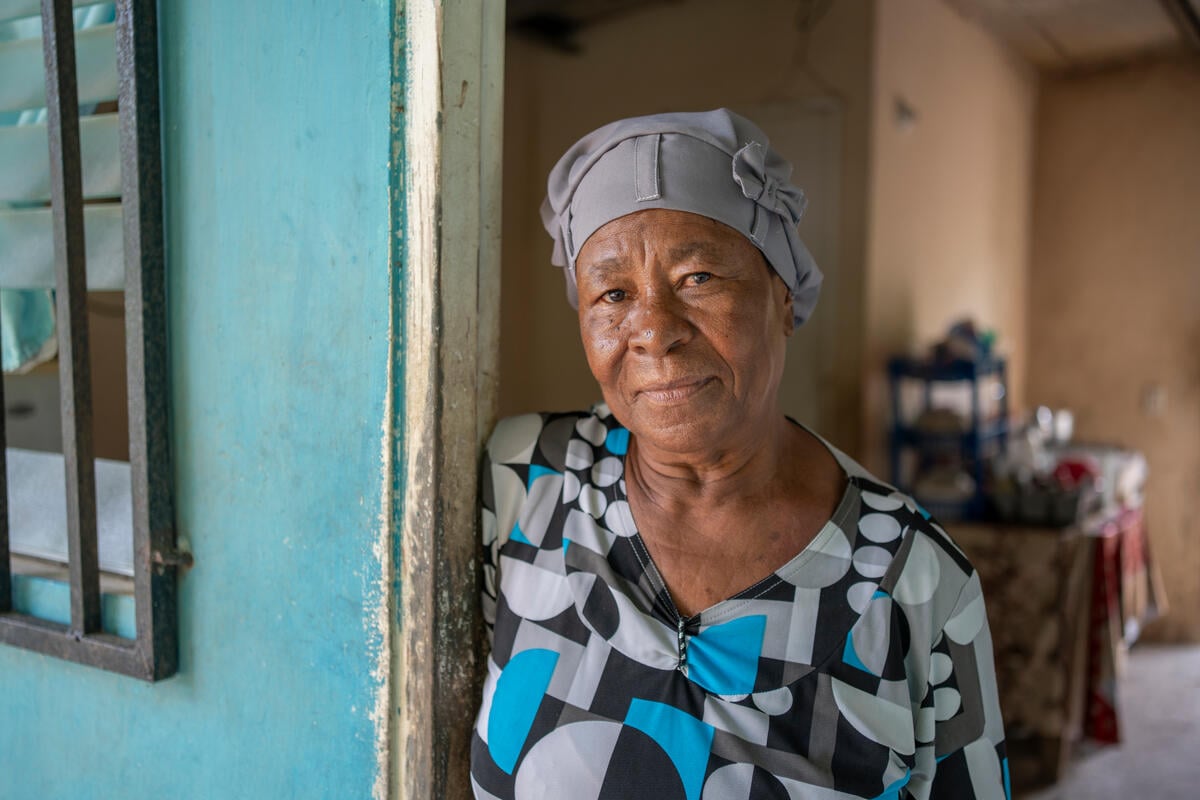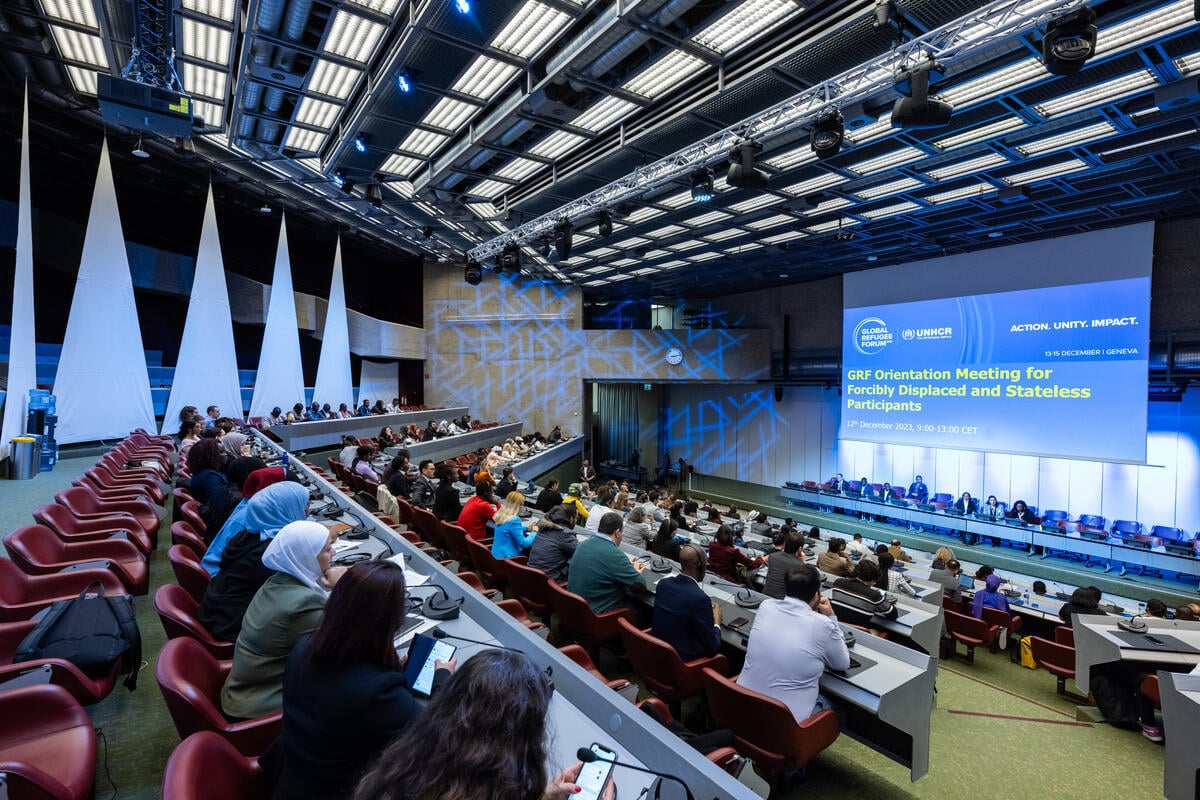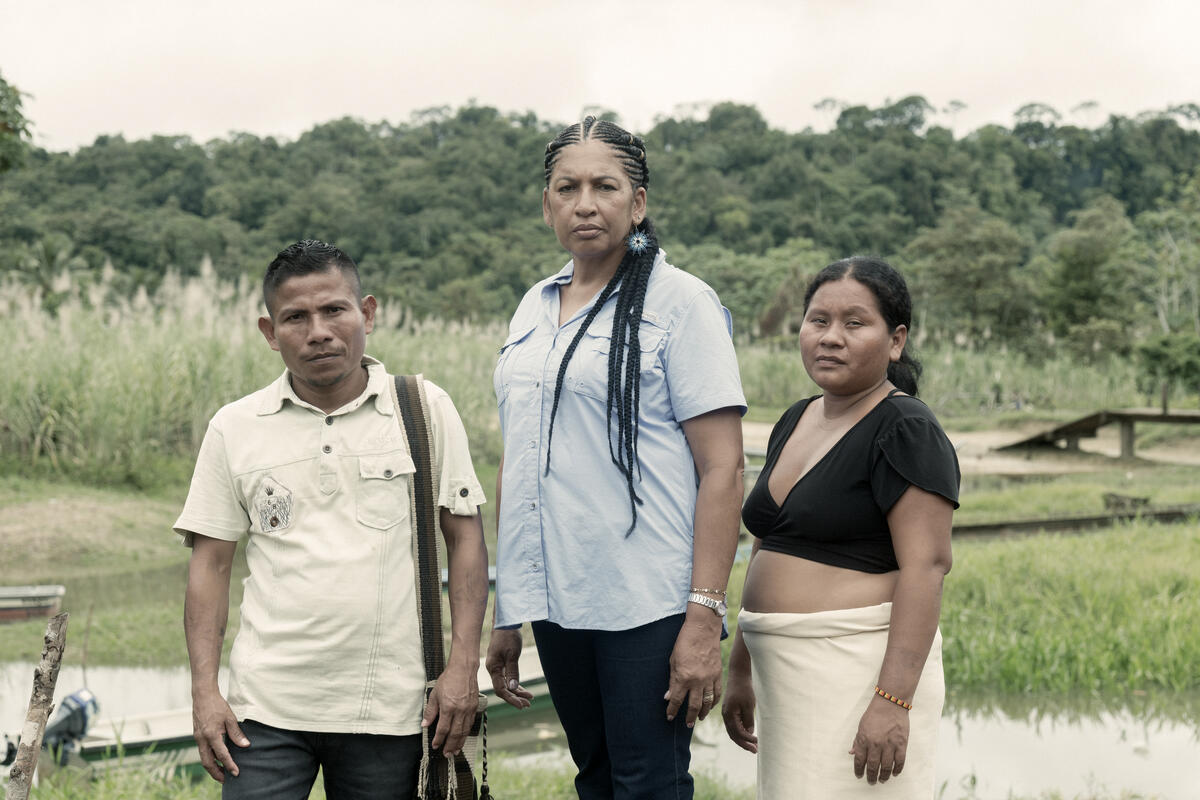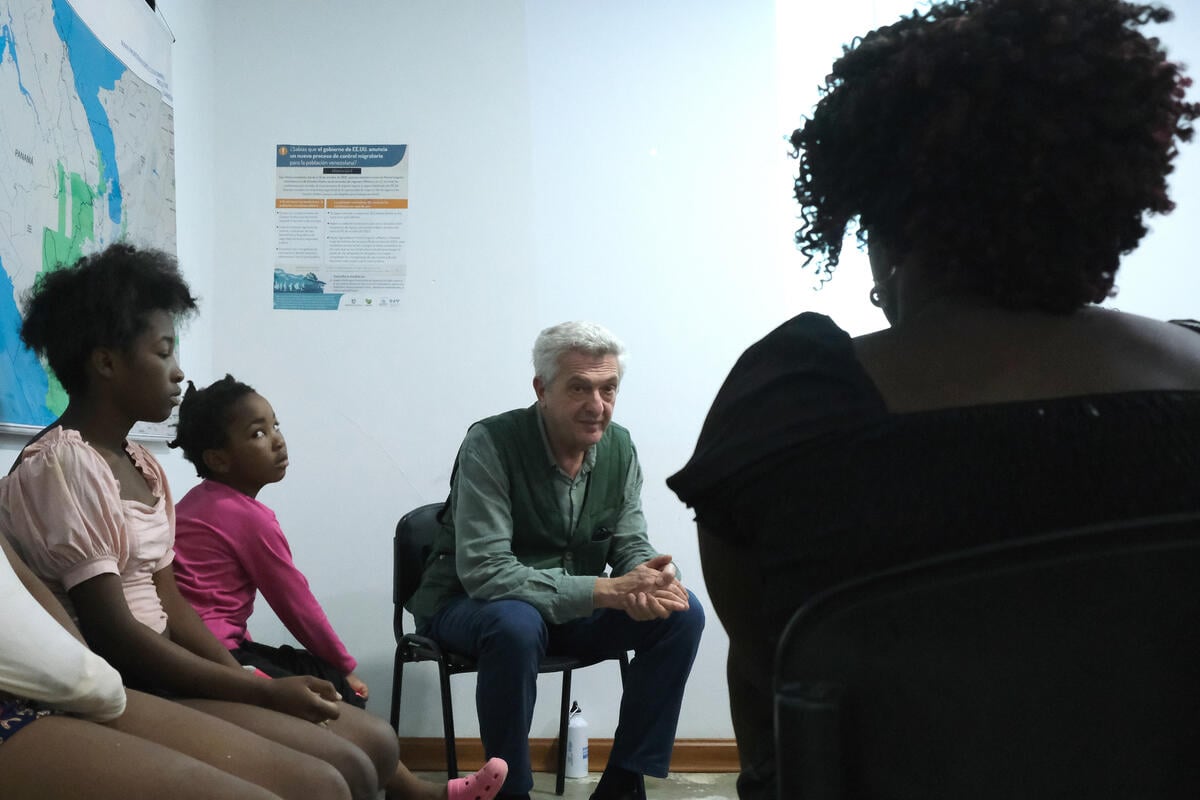Scores of Afro-Colombians continue to flee homes in Chocó province
Scores of Afro-Colombians continue to flee homes in Chocó province

BOGOTA, Colombia, Feb. 22 (UNHCR) - Scores of Afro-Colombians continued to flee their homes last week, pushing to nearly 1,300 the number of people displaced amid fears of an outbreak of fighting between armed groups in the region.
A UNHCR team dispatched to the town of Bellavista in the embattled province of Chocó has begun efforts to find shelter and assistance for the displaced in the region largely inhabited by Afro-Colombians - descendants of black slaves who number 10 million in Colombia.
Over the weekend, around 100 new arrivals were registered in addition to 1,200 who had trickled into the area earlier following reports that armed groups were building up forces near their villages.
UNHCR staff focused its first emergency interventions on ensuring that the displaced would have a say in decisions about assistance for them from the start. The team is working with local authorities to ensure that a census is carried out properly and to facilitate accommodations and provision of food to the arrivals.
Leaders of the displaced were fully involved in all these activities. It was essential to ensure that community structures would not suffer from the trauma of displacement. UNHCR staff also gave the arrivals basic information about their rights under Colombian law, including their entitlement to emergency assistance for at least tree months and the right to receive education and health services.
Emergency rations of food were been sent to the area by the authorities and the WFP in November and December 2004, when UNHCR first launched an alert about the increasing risk of confrontations in the Bojayá area.
More food and additional aid is expected in the coming days from the International Committee of the Red Cross, including mosquito nets, small mattresses and items for personal hygiene. Health is a major concern, due to garbage accumulation and lack of mosquito nets. An average of two new cases of malaria is reported every day. Spanish NGO Médicos del Mundo, which is running a health project in the area, has begun to provide IDPs with medicines.
UNHCR is discussing with authorities and IDP leaders further contributions that could include help in the building of temporary shelters. These actions will be coordinated with UNICEF and IOM, which are working closely with UNHCR.
There is also concern that some 20 indigenous communities along the nearby Cuia River, as well as the Bojayá River and its tributaries, may be affected by the worsening security situation. It is believed that some 2,000 indigenous people in those communities require food aid. UNHCR is giving priority to displaced communities, but a humanitarian mission to verify the situation of those blockaded indigenous communities is scheduled to visit the area in the next few days.
In a separate development, in the region of Condoto in southern Chocó, communities blocked by irregular armed groups have now received food aid from the Social Solidarity Network, the government agency dealing with internally displaced people. The effort was as a result of a joint commission in which UNHCR, Catholic church and local authorities participated. UNHCR is also participating in the local municipal committee which is coordinating the emergency response to the situation.
By Gustavo Valdivieso and William Spindler in Bogota, Colombia



